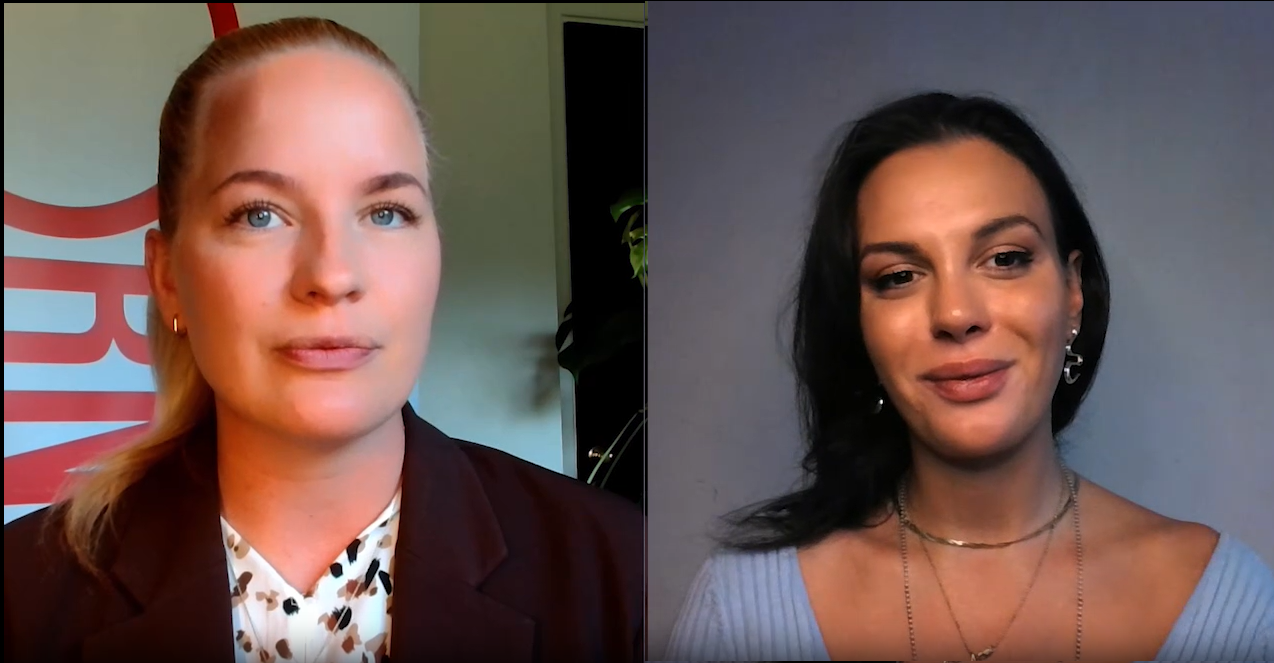James Gard: Now, the first quarter of the year is nearly over, and it's been a great period for global stock markets. To discuss this and more, I'm with Morningstar's Michael Field.
Michael, can you give us a recap on Q1?
Michael Field: Well, it's been a strange quarter and like you said, it's been overwhelmingly positive. I think no matter what the market has had thrown at it, it's pretty much responded well. The market dipped a little bit in January and then just recovered again, and you're looking at all-time highs or close to all-time highs for most markets now. That's despite a mixed earning season. It seems to just have shrugged all of those things off.
Gard: Yeah, it seems when markets seem to be untroubled like a completely clear sky, that's when I start to get a bit twitchy because I think that something bad is around the corner. But you think that the market has got ahead of itself in some respects in its anticipating rate cuts. But those are going to happen, right? So, the market confidence is to some extent justified.
Field: I think that's fair. Usually, we complain about the market being too short-termist, and this time around, it's looked through the bad news of a mixed earning season and a mixed economic outlook picture. It's looking straight through to the second half of the year when we should have lower interest rates across the board. So, it's hard to fault the market for doing actually what we wanted to do. Of course, there's no guarantee that those interest rates will come through, those interest rate cuts will come through. But like you said, it's looking ever-increasingly likely and the data points that we've seen, inflation and others, are definitely supporting that argument. So, it's hard to faulter.
Gard: Sure. I mean, a certain thing from the U.K. perspective, a lot of the data points are being revised upwards. There is optimism even in the Bank of England's forecast now about GDP. In Europe, we're not going to get spectacular growth or probably any growth this year. So, despite that, the markets are rising. Recently, I read your strategy monthly and you were saying that basically this is a good chance for Europe to shine. And this seems to me a little contrarian in the sense of all the stock market gains over the last three months, a year have been driven by the U.S. and the U.S.'s strong economic growth. Things are a bit tougher in Europe. But you think that Europe could actually get ahead of the U.S. in terms of interest rate cuts.
Field: So, I think, yes. In some ways, Europe's weakness is its strength. So, the fact that inflation is running lower in Europe than it is in the U.S., unemployment is slightly higher, gives the central banks a bit more leeway in terms of interest rate cuts. Now, a lot of people believe that the ECB will wait for the Fed to cut rates. But in terms of the magnitude of the cuts and the number of cuts that could come this year, it's fair to say that the ECB have far more room for manoeuvre, which would be very supportive of markets and the economy in general.
Gard: Sure. I mean, the ECB was one of the last central banks to hike. So, it takes a little bit of a leap of faith to think, well, it's going to be bold this time. But like you say, the inflation numbers are better, then there's no chance of overheating the economy in Europe, unlike there is in the U.S., with rate cuts.
Field: I think that's fair to say that, look, unemployment is close to historical lows in the U.S. at the moment. Economic growth is still coming in at around 3% or so. We expected to fall a little bit this year, but it's still miraculously high, given everything that's happened. And that's not the case in Europe. And you mentioned the U.K. as well. But growth is at or around zero at the moment. It should be a little bit higher in 2025. But to actually overheat that economy, we're probably taking atomic bomb at this stage. So that's definitely not going to happen. And I think the other thing that's overlooked as well is that economic growth in the U.S. to some degree came through because of the large stimulus packages that were offered. That set the economy off. And we didn't have that in Europe. And the upside of that is that we haven't expanded at our debt to GDP as they have in the U.S. So that kind of flexibility should help a little bit going forward also.
Gard: Sure. It certainly feels like there's a kind of economic standstill approaching in the U.S. in terms of the debt ceiling. I feel like we may revisit that again later this year or maybe next year. So, the U.S. has been all guns blazing since the pandemic, but it's papered over the cracks really.
Field: I think that's fair to say to some degree indeed. Like it's hard to big up Europe given that economic growth is so low. But also, you have to say that then the ceiling for Europe over the next couple of years is a lot higher. Who knows what the stimulus that will come from lower interest rates, what that might do for the economy. So, it could be exciting times.
Gard: Sure. And also, the valuations are lower. There hasn't really been a kind of AI miracle in Europe. So, you're looking at lower P/E ratios across the board and it's more undervalued companies.
Field: I would say some of that's fair to say, okay, look, if you look on a P/E basis, certainly Europe's trading at a cheaper valuation than the U.S. A lot of that is the growth. The growth is, generally speaking, lower. The U.S., as we know, is dominated by the Magnificent Seven. And that's kind of inflating the P/E ratio and inflating the growth as a result. So, it's difficult to know what it looks like when you kind of X that out. But indeed, from that perspective, Europe is cheaper. On our price to fair value estimate, we're at or around fair value. So, we're not seeing the kind of bargain territory we saw last year. But certainly, there's pockets of value within that. And also, we believe if interest rate cuts do come through in the next few months, then that might change the valuation picture across the sectors as well and open up some opportunities.
Gard: Sure. I mean, in your strategy report, you said that rate cuts in Europe are going to be disruptive. So just to pick three sectors that you highlighted is financials going to be more negative for the banks but positive for consumer sectors and positive for utility. So, if you don't mind, we'll focus a little bit on the consumer sector here in that just today Ocado is saying its sales growth was up and a number of active customers have increased. So, I regard Ocado as quite a useful bellwether for the more affluent consumers in the U.K., their willingness to spend, their willingness to pay more for groceries than they need to. So that to me is a positive sign. But you think that we're not out of the woods yet. In terms of European consumer, there's a lot of belt tightening still to be done.
Field: Yeah, indeed. I think, look, we can find some examples of consumer firms that have done well, despite the difficulties that we've seen. Ocado was one of them. It kind of sits in a niche to some degree. And you had the news also this morning about U.K. grocery inflation, which is down to pre-pandemic lows. It's 4.5%. There's nothing to be sniffed at. That's still currently high, but a lot lower than the near 20% levels that we saw a year-and-a-half ago or so. So, there's things are improving, certainly. But if you look at some of the earnings recently – and this is kind of more globally – but Nike or Lululemon, even these companies that we thought were in these kinds of niches are really struggling at the moment. And I include the luxury names and that kind of examples as well. Again, firms that we thought were invulnerable to this, the cracks are starting to show. So, I think the consumer is still a difficult space, but valuations are looking cheap. So, it's going to be very interesting how that picture plays out over the next few months.
Gard: Sure, you're absolutely right. I mean, there's a whole idea when we were entering the inflation era, it's like, well, brands are moat-worthy, these companies can pass on price rises and they're somehow protected from the wider reality. And that hasn't been the case. I mean, I sense that although inflation is falling, prices have reset at higher levels, right? So, people's wages have grown, certainly in the U.K., but the problem – unless we have deflation, we're still paying higher prices than we were two years ago, a year ago, and there has to have a break on spending surely.
Field: Completely. And I think even the economic data points like U.K. retail sales, for example, one interesting titbit from that was that the actual volumes of goods that people are buying is lower now than it was before the pandemic. So those price increases that we've seen have eaten up people's incomes as opposed to them buying more than they did before.
Gard: Sure. And I also wonder whether – I remember this figure that the Bank of England said at the end of the pandemic that people had 100 billion of spare cash that they saved. And I wonder whether quite a lot of that's been used up in travel, kind of revenge spending. So, people have burnt up the kind of excess reserves that they've had. So, they're now making hard choices. I don't want to spend X on a new sofa, a new fridge, new TV. I'm not going to prepare to pay the higher price because I know what it was a year ago.
Field: And that's true to some degree as well. Like obviously, 100 billion sounds like a lot of money. But when you spread that out across the entire U.K. populace, it's not very much. And when you're experiencing the levels of inflation that we've spoken about, it gets eaten up pretty quickly.
Gard: Sure. I mean, one thing that could help, I guess, is some rapid interest rate cuts. I mean, the Bank of England looks in no hurry to do it, but certainly the inflation figures are supportive. I read something from Capital Economics this week who are usually pretty contrarian. And they say that inflation is actually going to be below target next year and 2026. So, we could see 1% inflation, which will undershoot the Bank of England's target, leaving it with no choice but to cut rates to say instead of 4%, 3% or 2%. I mean, that seems like a mortgage holder's dream. But that may be a bit of an outlier in terms of prediction.
Field: Yeah, look, it's a moving target. So, it's very difficult to actually pinpoint what's going to happen. But indeed, the Bank of England are looking at this. Look, they're concerned that inflation might spike or that it might go below the target for a short period of time. But ultimately, rates in the U.K. are 5.25%. So, they're the highest in the developed world. The Bank of England have lots of room for manoeuvre there. And I think they will start making cuts sooner than later. And they can do it marginally and they can see how that feeds into the system. They have plenty of room for manoeuvre there. But it is an experiment. We haven't really been in this position before. So, it is going to be interesting to see exactly how it will pan out and what effect that will have on inflation.
Gard: Yeah, I mean, they're naturally cautious anyway. But I guess there's the other factor. I don't desperately want to go down the rabbit hole with the election, although consumers will benefit from lower rates. There is economic uncertainty in the next year or so. So, it's not plain sailing really for the consumer. Looking ahead, I know your quarterly look ahead report is due. I'm eagerly looking forward to reading it. Can you give us just a few titbits or insights? I know in Q2, we've got potential interest rate cuts and we've got another earnings season. So, do you want to just give us a little bit of a teaser?
Field: Yeah, look, there's a lot happening. I think one thing that's fair to say is that a lot of the trends we saw in the first quarter of the year are kind of continuing. So that's quite an interesting situation to play out. But we are seeing some signs of life in some sectors. U.K. homebuilders, for instance, you're starting to see home sales increase over the last little while. So, the front running of interest rate decreases and how that's affecting certain sectors will be a pretty big theme that we're going to touch upon next month.
Gard: Sure. Yeah. I mean, the housing sector is always very interesting. It was beaten up. And if you look at the share prices, there is a little bit of kind of tentative signs of renewal. Even the REITs prices have started to push up a bit as people go back in the office and rates potentially could come down. But I'm looking ahead to June. And I've already called it Super June, but I don't think anyone else is going to call it Super June. But we've got ECB June 6, June 12th Fed, and June 20th Bank of England. So potentially we could tee up a triple rate cut for June, which would make an interesting end to the quarter.
Field: Indeed. And Super June is pretty catchy, James. I'd be surprised if that doesn't take off. But no, indeed, indeed. And expectations are lining up for June across the board. So, whether that will be one central bank or three that will cut, I think you could certainly see something happening there at the very least.
Gard: Yeah. I mean, Q1 was fascinating and so many things. You mentioned in your report that you felt like central bank words were never more adhered to or followed by the market. It feels like we're going to get more of the same in the next quarters. Central banks will hold all the cards. It's a question of second guessing what happens next and seeing whether they do finally cut. They have to cut at some point, surely this year.
Field: Indeed. And I said about the words being followed very, very closely in the last central bank meetings that we saw. But I think as and when we approach June, I think investors are looking for a little bit more than words.
Gard: Yeah, they want to see some action. But things might be clear next time we talk, which is in a month's time. So very much looking forward to speaking to you then and we hopefully have a better idea of what the market is going to do in the second quarter. So, thanks very much for your time, Michael.




























